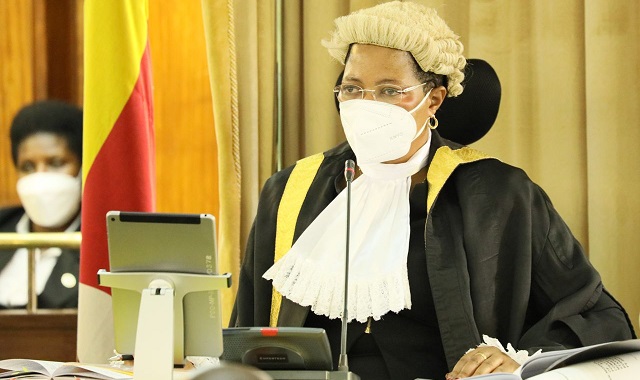
Kampala, Uganda | THE INDEPENDENT | Government’s proposal to move money from the Uganda Women Empowerment Project (UWEP) to the Parish Development Model (PDM) has been rejected by legislators who said that the move will affect the welfare of women.
A total of Shs29.2 billion out of the UWEP budget of Sh32 billion had been re-allocated from the Ministry of Gender, Labour and Social Development leaving Shs2.98 billion for secretariat operations and salaries of staff.
Legislators led by Speaker Anita Among said the government will ‘suffocate’ a well performing programme in favour of a new programme whose success they are unsure of.
“I do not think that when you want to give birth to a new baby you should suffocate the old child. UWEP is the only thing I feel in Terego. Therefore, we are not accepting that this money be shifted when we do not even understand the Parish Development Model,” Rose Obigah, Terego District MP said.
Speaker Among directed that UWEP funds should not be reallocated saying the programme has registered and contributed to the welfare of women as observed from the 72 percent recovery rate from funds loaned to women.
“You cannot scrap money from UWEP to PDM; that one is a no go area. Women need their money because not all women will be in those PDM Saccos. So we want our money as women,” Among said.
The MPs made these demands as they debated the report of the Committee on Gender, Labour and Social Development on Wednesday, 20 April 2022.
The Committee Chairperson, Flavia Kabahenda said the re-allocation of funds will have a negative impact on the continuity of programmes under UWEP and ultimately the lives of women.
“This effectively stops the programme and will not only put the lives of women at risk but will also make it impossible to recover the money already in circulation,” Kabahenda said adding that, ’whereas special interest groups are allocated funds in the PDM, the bulk of the funds are aimed at agricultural enterprises and yet the vast majority of women in Uganda have limited access to factors of production especially land’.
The Minister of Gender, Labour and Social Development, Betty Amongi said her ministry would welcome Parliament’s resolution to halt the transfer of money from UWEP to PDM.
“I have made justification for this extensively in several meetings with the Finance Ministry and in cabinet; the decision of cabinet was that the Shs29.2 billion under UWEP be removed and merged under the PDM. But if this House feels the money should be retained, the committee report should be amended to reflect this,” said Amongi.
She informed MPs of a presidential directive to allocate Shs34.7 billion recovered from loans under UWEP to a revolving fund for both the Youth Livelihood Programme (YLP) and UWEP.
MPs rejected this proposal and said it was wrong to use money raised under UWEP for other programmes. Additionally, legislators said YLP was a failed programme that should not dilute the ‘good’ work being done under UWEP.
“You are recovering money to be absorbed by another sector? That is wrong. You are pushing us into something we do not understand; make us understand. We need to explain to our people what it means,” Among said.
Alebtong District Woman MP, Dorcus Acen said reports from oversight visits about YLP indicate an extremely poor recovery rate on funds and warned against merging the two programmes as proposed by the President.
“You want to merge YLP with UWEP yet the recovery rate for YLP has been extremely low all over the country. When we moved to the districts, we did not find any district with information showing that YLP was performing well yet the recovery rate for UWEP in some of the districts in Northern Uganda is at 96 per cent,” Acen said.
UWEP was established in 2016 as an affirmative action revolving fund with the goal of empowering women to improve their income levels, their participation and contribution to economic development. The project beneficiaries include unemployed women, women with disabilities and other vulnerable women. The project has an impressive recovery rate of 72.8 per cent which is the highest among all poverty alleviation projects.
*****
SOURCE: UGANDA PARLIAMENT MEDIA
 The Independent Uganda: You get the Truth we Pay the Price
The Independent Uganda: You get the Truth we Pay the Price





